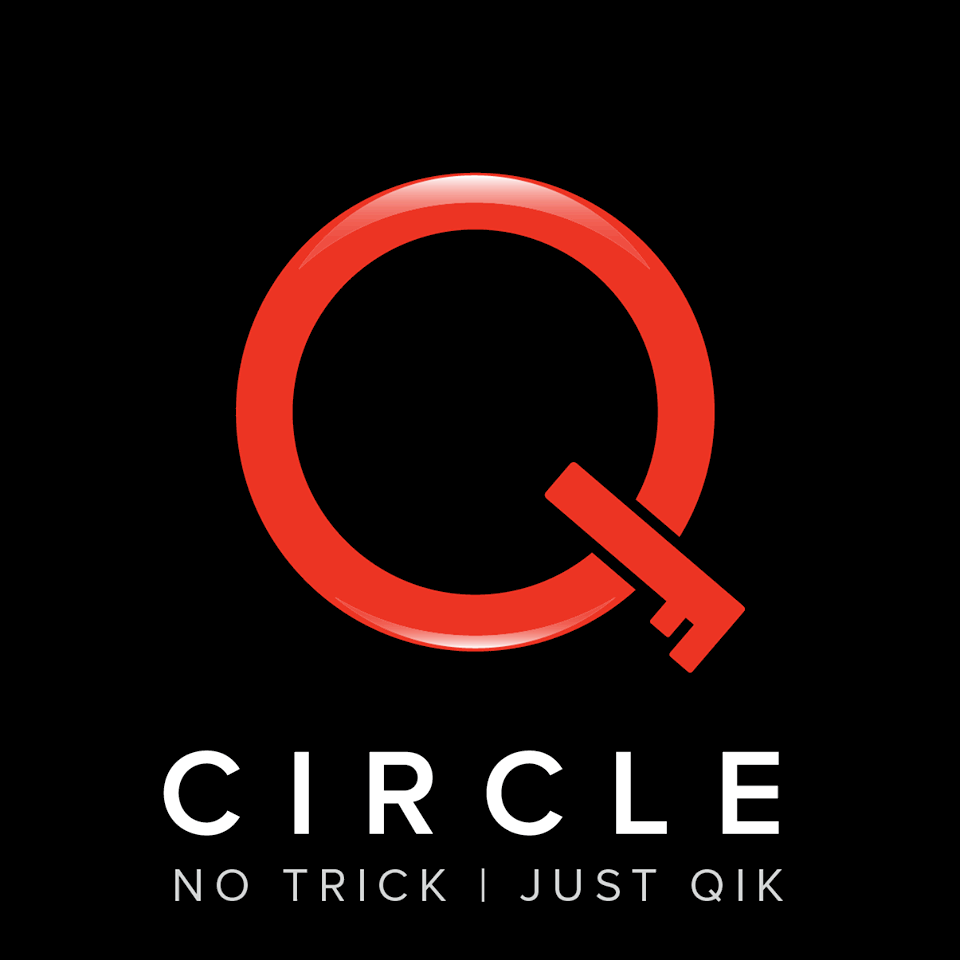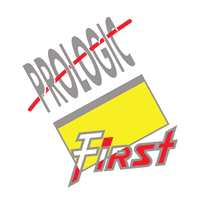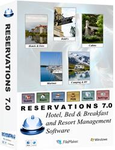Description

MQSYS Hotel

QiK Circle
Comprehensive Overview: MQSYS Hotel vs QiK Circle
As of my last update in October 2023, I do not have specific information on products named MQSYS Hotel or QiK Circle. It is possible that these names pertain to recent or niche market offerings, proprietary solutions for specific hotel chains, or regional products that aren't widely recognized globally.
To provide you with a comprehensive overview of such products, a general approach can be considered, focusing on typical functions, target markets, market positioning, and differentiating factors of hotel management software systems in general. Here's a broad perspective based on common functionalities and market trends:
a) Primary Functions and Target Markets:
- Primary Functions: Hotel management software typically offers a range of features designed to streamline and optimize various operations within a hotel or hospitality environment. These can include:
- Reservation and booking management
- Check-in and check-out processes
- Customer relationship management (CRM)
- Housekeeping management
- Revenue management and pricing
- Reporting and analytics
- Channel management and integrations with Online Travel Agencies (OTAs)
- Point of Sale (POS) systems for on-premise sales.
- Target Markets: These solutions can target different segments within the hospitality industry:
- Small, independent hotels and bed & breakfasts
- Medium-sized hotel chains
- Large, international hotel enterprises
- Resorts and spas
- Other lodging establishments like hostels and vacation rentals.
b) Market Share and User Base:
- Without specific data on MQSYS Hotel and QiK Circle, we can only refer to general trends in the hotel management software industry. Products in this space can have varying market shares depending on their regional presence, feature sets, and industry partnerships.
- Established brands typically have larger market shares due to international reach and comprehensive features, while newer or niche solutions might cater to specific regions or offer unique value propositions that appeal to targeted segments of the hospitality market.
c) Key Differentiating Factors:
- Integration Capabilities: Some systems might offer superior integration with third-party services like payment gateways, OTAs, or customer review platforms which can be a significant differentiator.
- User Interface and Experience: Systems that offer intuitive interfaces and easy-to-use functionalities can have an edge in attracting a broader user base.
- Customization and Scalability: Products that allow high levels of customization and scalability may appeal more to larger chains or hotels with specific operational needs.
- Pricing Models: Pricing flexibility, whether subscription-based or one-time licensing, can differentiate products in the market.
- Technological Innovations: Advanced features like data analytics, AI-driven algorithms for pricing and demand forecasting, or mobile functionalities can also set products apart.
For a more precise overview, especially comparative data specific to MQSYS Hotel and QiK Circle, it would be beneficial to access recent industry reports, product reviews, or reach out to industry-specific forums and publications for the most up-to-date information regarding these products.
Contact Info

Year founded :
Not Available
Not Available
Not Available
Not Available
Not Available

Year founded :
2016
+91 98703 20209
Not Available
India
http://www.linkedin.com/company/qikcircle
Feature Similarity Breakdown: MQSYS Hotel, QiK Circle
To provide a feature similarity breakdown for MQSYS Hotel and QiK Circle, we need to look at the core functionalities of hotel management systems commonly found in such software and how these two products might align or differ. Here's a general comparison based on typical features and user interfaces of hotel management systems like MQSYS Hotel and QiK Circle:
a) Core Features in Common:
-
Reservation Management:
- Both systems provide robust tools for booking management, allowing users to handle reservations efficiently.
-
Front Desk Operations:
- Features like check-in/check-out processes, room allocation, and guest profile management are typically supported.
-
Housekeeping Management:
- Both systems likely offer tools for scheduling and tracking housekeeping tasks.
-
Billing and Invoicing:
- The ability to manage payments, generate invoices, and handle accounting tasks is common.
-
Guest Experience Features:
- Both products probably offer features to enhance guest experiences, such as loyalty programs and personalized services.
-
Reporting and Analytics:
- Standard reporting tools for operational insights and performance analysis are integral parts.
-
Multi-Channel Integration:
- Both systems may support integration with various booking platforms and OTAs (Online Travel Agencies).
b) User Interface Comparison:
-
MQSYS Hotel:
- MQSYS Hotel might focus on a more traditional interface, prioritizing functionality and comprehensive feature access over modern design aesthetics. This can often include straightforward navigation and menu-driven options.
-
QiK Circle:
- QiK Circle might emphasize a more contemporary and user-friendly interface, possibly incorporating drag-and-drop features, more visually appealing layouts, and mobile-responsive design to cater to modern users who prioritize ease of use.
c) Unique Features:
-
MQSYS Hotel Unique Features:
- MQSYS might offer unique integration capabilities with legacy systems or custom modules tailored for specific regional needs or compliance with local hospitality regulations.
- It might also have advanced data security features for sensitive guest and financial data.
-
QiK Circle Unique Features:
- QiK Circle could be distinguished by AI-driven guest preferences management or enhanced CRM functionalities to leverage data for better marketing strategies.
- It might also feature superior mobile app integrations or user-centric mobile applications for managing bookings on the go.
These differences and similarities represent general expectations from hotel management systems, and specific details would depend on the latest updates and enhancements made by each provider. For a complete understanding, direct comparison based on vendor documentation or trial evaluations of these products would be necessary.
Features

Not Available

Not Available
Best Fit Use Cases: MQSYS Hotel, QiK Circle
MQSYS Hotel and QiK Circle are software solutions designed to address different aspects of hotel and property management. Here's how these products fit into various use cases and scenarios:
a) MQSYS Hotel
Best Fit Use Cases:
-
Independent and Boutique Hotels: MQSYS Hotel is well-suited for small to mid-sized independent hotels that require a robust, yet simplified management solution. It helps streamline operations such as reservations, front desk management, and housekeeping.
-
Resorts and Spas: The comprehensive features of MQSYS Hotel make it ideal for resorts that may need additional modules like spa management, event organization, and activities scheduling.
-
Serviced Apartments and Vacation Rentals: Companies that manage serviced apartments or vacation rentals can benefit from its ability to handle bookings, billing, and client communication efficiently.
Business Types:
- Hospitality businesses aiming for cost efficiency and simplified management.
- Properties seeking integration of multiple services within a single system.
b) QiK Circle
Preferred Scenarios:
-
Large Hotel Chains: QiK Circle is typically more suitable for large hotel chains due to its scalability and enhanced capabilities for handling complex operations and a high volume of transactions.
-
Multi-property Management: For companies managing multiple properties, QiK Circle offers centralized control and standardized processes across different locations, enabling uniformity and easy management.
-
Convention Centers and Large Event Venues: Its robust event management features make it an excellent choice for venues that host conferences, exhibitions, or large-scale events, requiring detailed scheduling and resource allocation.
Business Types:
- Large-scale operations looking for integration with existing enterprise systems.
- Businesses requiring robust analytics and reporting to drive decisions.
d) Catering to Different Industry Verticals or Company Sizes
Industry Verticals:
-
Hospitality: Both systems cater to the hospitality industry but focus on different segments. MQSYS Hotel is more aligned with traditional hospitality operations, while QiK Circle extends into large-scale operations and event management.
-
Travel and Tourism: While not a direct fit, both systems can support travel agencies that provide comprehensive packages including accommodations, especially when operations are linked to specific properties.
Company Sizes:
-
Small to Medium Enterprises (SMEs): MQSYS Hotel is a flexible choice for SMEs due to its cost-effective and straightforward implementation. It facilitates essential functions without overwhelming users with unnecessary complexity.
-
Large Enterprises: QiK Circle caters to large enterprises requiring a sophisticated system that integrates seamlessly with other enterprise solutions, offering advanced functionalities and customizability to suit large-scale operations.
Both platforms are geared towards optimizing operations within their respective sweet spots, ensuring that companies can focus on enhancing guest experiences while maintaining operational efficiency.
Pricing

Pricing Not Available

Pricing Not Available
Metrics History
Metrics History
Comparing teamSize across companies
Conclusion & Final Verdict: MQSYS Hotel vs QiK Circle
To provide a comprehensive conclusion and final verdict for MQSYS Hotel and QiK Circle, let's break down each component of your request:
a) Considering All Factors, Which Product Offers the Best Overall Value?
When evaluating the overall value of MQSYS Hotel and QiK Circle, it's essential to consider factors such as functionality, ease of use, cost, scalability, customer support, and integration capabilities. The best product in terms of overall value depends largely on the specific needs and priorities of the user.
-
MQSYS Hotel is well-suited for large hotels or chains that require robust functionalities with detailed analytics and reporting tools, strong integration capabilities with external systems, and extensive customizability. It often appeals to users who prioritize comprehensive feature sets over cost.
-
QiK Circle tends to offer better value for small to mid-sized hotels focused on simplicity, affordability, and user-friendly interfaces. It often includes essential features needed to manage hotel operations efficiently without the complexity that larger systems might bring.
Given these points, QiK Circle typically offers the best overall value for smaller operations with limited budgets, while MQSYS Hotel provides significant value for larger establishments needing extensive integrations and custom functionalities.
b) Pros and Cons of Choosing Each Product
MQSYS Hotel:
-
Pros:
- Comprehensive feature set catering to large-scale operations.
- Highly customizable to fit specific needs of different hotel chains and sizes.
- Strong reporting and analytics tools for detailed insights.
- Seamless integration with external systems (e.g., CRM, ERP).
-
Cons:
- Higher cost compared to simpler solutions.
- Steep learning curve due to complex features.
- Might be overwhelming for small hotel operations that don't need all functionalities.
QiK Circle:
-
Pros:
- User-friendly interface ideal for quick adoption and daily use.
- More affordable, making it a great choice for smaller hotels.
- Streamlined features focusing on essential operations.
- Easier to implement with minimal setup time.
-
Cons:
- Limited functionalities compared to more extensive systems.
- Less flexibility with customization options.
- May not support as many third-party integrations.
c) Recommendations for Users Deciding Between MQSYS Hotel vs QiK Circle
-
Assess Your Needs:
- Determine the scale of your operations, budget constraints, and essential features. For larger hotels or chains with complex needs, MQSYS Hotel is likely more appropriate. For smaller establishments, QiK Circle may suffice.
-
Scalability:
- Consider future growth. If you anticipate significant expansion or increased complexity in operations, investing in a system like MQSYS Hotel might be beneficial even if it means higher short-term costs.
-
Ease of Use:
- If immediate usability and minimizing staff training time are crucial, QiK Circle offers a more intuitive and straightforward experience.
-
Budget Considerations:
- Weigh the upfront and ongoing costs against the features needed. Sometimes the added cost of a comprehensive system like MQSYS Hotel can be justified with long-term productivity gains.
-
Integration Needs:
- If seamless integration with existing tools and software is a necessity, especially for larger operations, MQSYS Hotel may provide superior solutions.
Ultimately, the best choice will reflect the hotel's specific operational requirements, budget, and growth plans. By analyzing these factors, users can make an informed decision that aligns with their strategic goals.
Add to compare
Add similar companies




